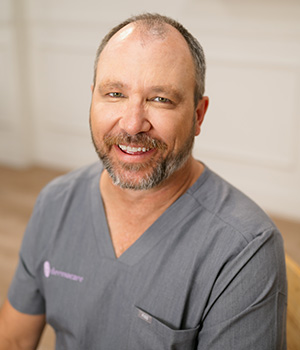 Lip fillers. Botox. Chemical peels. Red light therapy. Even just 10 years ago, non-invasive, aesthetic medical procedures were for the ultra-wealthy. The out-of-pocket costs made them difficult to access, but in recent years, they’ve become commonplace across the globe. In 2022, the medical aesthetics market was worth $15.3 million, but that number is expected to grow by 14.7% annually between now and 2032. In the industry for decades, Dr. Jeff Birchall has seen the industry change, not only from his customer’s point of view but also with regard to medical capabilities and technology.
Lip fillers. Botox. Chemical peels. Red light therapy. Even just 10 years ago, non-invasive, aesthetic medical procedures were for the ultra-wealthy. The out-of-pocket costs made them difficult to access, but in recent years, they’ve become commonplace across the globe. In 2022, the medical aesthetics market was worth $15.3 million, but that number is expected to grow by 14.7% annually between now and 2032. In the industry for decades, Dr. Jeff Birchall has seen the industry change, not only from his customer’s point of view but also with regard to medical capabilities and technology.
“When I started in medicine 36 years ago, it was all paper charts and a regular phone system. Then we started using Electronic Medical Records (EMRs) on servers in the office. Now everything is cloud-based,” Dr. Birchall explained. These changes in technology impacted his focus as a medical practitioner, but since starting his own practice, Dermacare, in 2006, they’ve caused even more changes.
Customer privacy, HIPPA requirements, credit card information, staff communication, and even medical service levels depend on a fully operational IT infrastructure. Years ago, before the level of tech dependence today, Dr. Birchall forged a partnership with Automates, a managed IT service provider that helps run the IT side of things so he can focus on patient care. “Let the lawyer make the contracts, let your accountant do your taxes, and let your IT person do your IT. I do the same thing. If you want your face to look good, come to me. I know how to do Botox. Don’t try to do it yourself.”
25 Years Strong
Dr. Birchall has been working with Automates for 25 years; even before Tommy Thornton started up the Automates office in San Diego, Dr. Birchall was working with the company. As Dermacare grew and changed, so did Automates. “As the business evolved, Tommy took over and has been leading the ship. It’s really amazing to watch what he’s been doing with the company,” said Dr. Birchall.
In medicine, technology plays a critical role in patient care. Because all patient charts are kept in the cloud and referenced on devices like iPads, Dr. Birchall and his team can’t provide the level of care their clients deserve without properly functioning technology. “We communicate so much through our computers and our smart devices now. Without them, we can’t function. I can’t know what my patient did with their Botox three months ago if my computer system isn’t working,” he explained. As the role of technology takes center stage in the patient/provider relationship, clinics and providers of all types have to invest in IT.
Hardware, software, infrastructure—nothing can be overlooked. “Just think of bandwidth,” Dr. Birchall elaborated. “Before, all you needed was a fax line. Now technology needs are evolving every two years, requiring upgrades and advanced expertise. We have tech-savvy people in our office, but in recent years, the technological demands have exploded beyond any of our abilities to manage it. It’s too fast, too big, and too specialized of a field to not have an expert managing it.”
Balancing Medical and Retail Needs
Because of the nature of the services provided at Dermacare, things work a bit differently than they do at many other medical providers. “From a security perspective, we have both HIPPA regulations, which is medical information we need to keep secure, but we’re a retail business as well, so we have cash transactions and credit card transactions that require protection.” Because insurance isn’t accepted at Dermacare, patients are buying services and products, swiping their credit cards, and relying on the merchant to keep their information safe.
In order to maintain a trusting relationship with his own clients, Dr. Birchall leans on his trust of Tommy and the Automates team when it comes to IT. “I have gotten to know Tommy well over the years, and I trust him wholeheartedly. I know he has integrity and does everything to make sure his business reflects that, especially when it comes to cybersecurity. His approach allows me to sleep at night, reduces my workload and stress, and protects my clients.”
Occasionally, Dermacare hosts 250–300 people at an educational event in a hotel or large venue. Because sales are part of the business, a whole network is set up to enable the processing of credit cards. During these events, Automates goes above and beyond, arriving early, getting everything set up, ensuring it’s all secure, and managing the technology throughout the event. When a business has certain IT requirements, not all MSPs are able to provide tailored service, but with Automates, it has never been an issue.
Positive Business Impact
Now with three locations, Dermacare has faced its fair share of challenges when opening a new facility. “When we moved our office in Carlsbad, we had a lot of trouble getting a T-1 line in there, and we were changing from one carrier to another carrier, and none of them were being cooperative,” Dr. Birchall recalled. To get the practice in an operational state, Automates did all the heavy lifting of creating another option: working with a third carrier and implementing in-house technology to bring it all together.
Time and time again, Automates proves its value as a business partner. To Dr. Birchall, their services clearly illustrate the idea that, as a business owner, sometimes you get more value from paying for experts to take care of something than trying to do it yourself. “By being cheap in areas of professional support, you end up costing yourself a lot more money, stress, and mistakes. If I can save 30 seconds per patient encounter over the year, that’s days in time saved, which translates to dollars that can go back to my patients and my business.”
Knowing whom to call is the superpower of any successful entrepreneur. Dr. Birchall answers the call when it comes to aesthetic medical procedures, but he’s the one calling Automates when it comes to IT.




